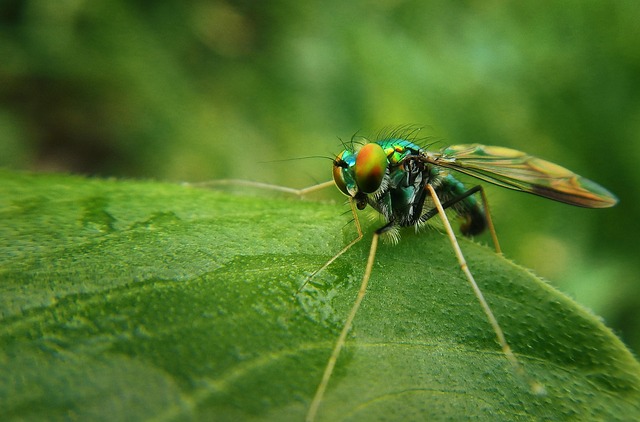Eco-friendly mosquito control strategies involve managing breeding sites, understanding behavior, and employing integrated pest management (IPM). Natural repellents, plant choices, biological agents, smart sensors, community engagement, and predictive modeling reduce reliance on chemicals. Long-term solutions break the disease transmission cycle through habitat manipulation and natural predator fostering.
“In the quest for effective yet eco-conscious mosquito control, this comprehensive guide explores innovative strategies to combat these persistent pests. From understanding mosquito ecology to implementing natural repellents and sustainable practices, we delve into a multifaceted approach. Discover how planting choices, advanced technologies, community involvement, and safe alternatives can reduce mosquito populations. Additionally, learn about monitoring tools and long-term strategies to minimize the risk of mosquito-borne diseases, ensuring a healthier, more sustainable environment.”
Understanding Mosquito Ecology for Effective Control
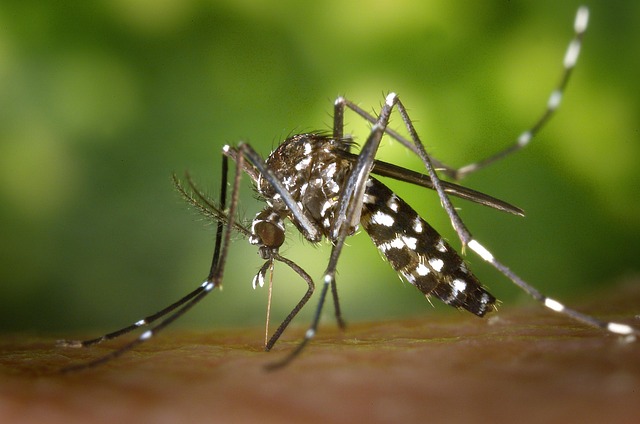
Understanding the complex ecology of mosquitoes is a cornerstone in developing effective mosquito control strategies. Mosquitoes, as aquatic insects, breed in stagnant water, making it crucial to manage and eliminate standing water sources. This includes emptying containers, cleaning gutters, and maintaining proper drainage systems to disrupt their breeding cycle. Moreover, understanding mosquito behavior reveals that they are attracted to carbon dioxide, heat, and certain chemicals found in human sweat, allowing for targeted strategies like using repellents and avoiding peak activity times.
By studying the life cycle of mosquitoes—from eggs laid in water to adult insects ready to feed—we can implement integrated pest management (IPM) approaches. IPM combines biological, cultural, physical, and chemical methods to manage mosquito populations sustainably. This might involve introducing natural predators like fish or bacteria that target mosquito larvae, using plant-based repellents, or strategically applying insecticides only where and when needed. Such a holistic approach ensures the safety of humans and wildlife while effectively controlling mosquito populations, thereby enhancing public health and quality of life.
Natural Repellents and Their Application in Urban Settings
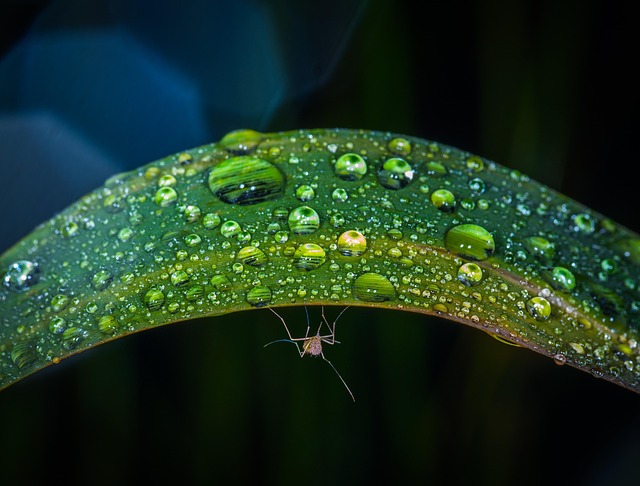
Natural repellents, derived from plants and essential oils, offer an eco-friendly alternative to chemical-based mosquito control in urban settings. Compounds like citronella, lavender, and peppermint have been shown to deter mosquitoes effectively when applied topically or diffused. In cities, these natural solutions can be integrated into urban landscapes through strategically placed potted plants, community gardens, and scent diffusers in public spaces.
This approach not only reduces the reliance on synthetic pesticides but also contributes to a healthier environment and improved air quality. Moreover, natural repellents are safer for pets, children, and local wildlife, making them an attractive option for urban dwellers seeking sustainable mosquito control methods.
The Role of Planting in Deterring Mosquito Breeding Grounds

Planting certain types of flora can significantly deter mosquito breeding grounds. Mosquitoes rely on standing water for reproduction, so plants that disrupt this environment are highly effective in natural mosquito control. For instance, aquatic plants with dense foliage like marsh marigolds and water lilies not only obstruct sunlight but also reduce the surface area available for water to accumulate, making it harder for mosquitoes to breed.
Additionally, some plants naturally emit substances that repel mosquitoes. Citronella grass, lemongrass, lavender, and basil are well-known for their mosquito-repelling properties. Strategically placing these aromatic plants around living spaces can create a natural barrier against mosquitoes, providing an alternative to chemical-based mosquito control methods. This eco-friendly approach not only minimizes the use of harmful chemicals but also promotes a healthier, more sustainable environment.
Innovative Technologies for Eco-Friendly Mosquito Management
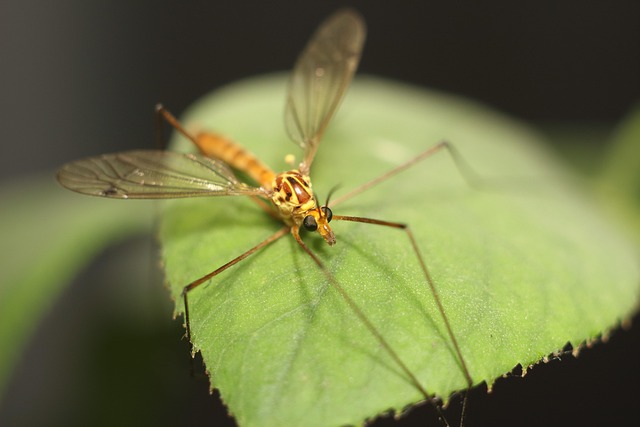
The battle against mosquitoes has seen a shift towards eco-friendly methods, thanks to innovative technologies that offer effective mosquito control while minimizing environmental impact. One such technology is the use of biological agents, such as bacteria and viruses, which target specific mosquito species without harming other organisms or the ecosystem. These natural predators, like certain types of fungi, can effectively reduce mosquito populations.
Another promising approach is the implementation of smart sensors and monitoring systems that track mosquito activity in real-time. These devices detect CO2 and heat, which attract mosquitoes, allowing for precise application of repellents or traps. This targeted strategy reduces the need for widespread chemical applications, making it an efficient and environmentally conscious method for Mosquito Control.
Community Engagement in Mosquito Control Programs

Community engagement is a vital component of successful eco-friendly mosquito control programs. By involving residents, local organizations, and businesses, these initiatives can gain valuable insights into the specific needs and challenges faced within different neighborhoods. Active participation fosters a sense of collective responsibility for maintaining a healthy environment, encouraging the adoption of best practices in pest management.
Through community engagement, educational workshops, and collaborative actions, individuals learn about the life cycle of mosquitoes, effective prevention methods, and the importance of eliminating standing water. This knowledge empowers residents to take proactive steps, such as properly maintaining their properties, using natural repellents, and implementing drainage improvements, thereby reducing mosquito populations and enhancing overall community well-being.
Safe and Sustainable Pesticide Alternatives for Mosquitoes
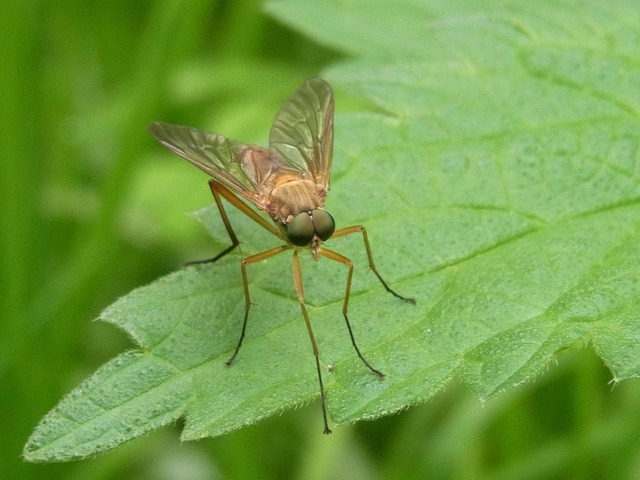
In the pursuit of effective mosquito control, it’s essential to explore safe and sustainable alternatives that steer clear of traditional pesticides. These eco-friendly methods offer a harmonious balance between human health and environmental preservation. Natural solutions like citronella plants, lavender, and basil not only repel mosquitoes but also add aromatic beauty to outdoor spaces. Additionally, biological controls such as Bacillus thuringiensis israelensis (Bti) target mosquito larvae effectively without harming beneficial insects or the ecosystem.
Beyond these plant-based and biological options, innovative technologies are transforming mosquito control. Devices that use ultrasound waves and light-emitting diodes (LEDs) have proven successful in repelling mosquitoes without chemicals. These modern approaches demonstrate a commitment to non-toxic, eco-conscious strategies for managing mosquito populations, ensuring a healthier environment for both humans and wildlife while effectively mitigating the spread of diseases transmitted by these insects.
Monitoring and Predictive Modeling for Targeted Mosquito Mitigation
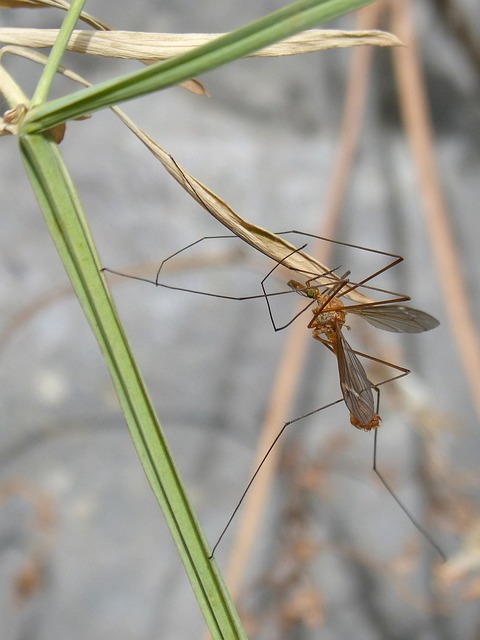
Monitoring mosquito populations is a critical aspect of eco-friendly mosquito control. By utilizing advanced technologies and data analytics, professionals can now predict mosquito breeding grounds and migration patterns with remarkable accuracy. This information is crucial for targeted mitigation strategies, ensuring that resources are used efficiently to eliminate breeding sites before mosquitoes become a nuisance or pose health risks.
Predictive modeling integrates historical data, environmental factors, and real-time surveillance to anticipate mosquito movements and identify areas prone to high concentrations. This proactive approach allows for the implementation of tailored control measures, such as targeted larvicide applications, habitat manipulation, or even biological controls, directly where they are needed most. As a result, traditional spraying methods can be significantly reduced, minimizing ecological impact while effectively managing mosquito populations.
Long-Term Strategies to Reduce Mosquito-Borne Disease Risk

Implementing long-term strategies is crucial in the global effort to reduce mosquito-borne disease risk. Unlike quick fixes, these sustainable approaches focus on breaking the transmission cycle at its source. One effective method is minimizing standing water, as mosquitoes breed in stagnant water bodies. Communities can adopt practices like regular cleaning of containers that hold water, improving drainage systems, and promoting the use of rain barrels with tight-fitting lids.
Additionally, fostering natural predators of mosquitoes can be a powerful tool in mosquito control. Birds, bats, and certain fish species feed on mosquito larvae and adults, helping to maintain a balanced ecosystem. Protecting and conserving habitats that support these natural predators, such as wetlands and forests, contributes to a more sustainable and holistic approach to mosquito control.
